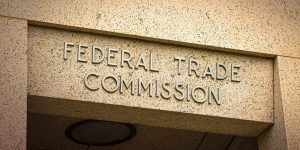Resource Center:
Blog
-
 What Is an Existing Business Relationship (EBR)?
PossibleNOW, Blog
What Is an Existing Business Relationship (EBR)?
PossibleNOW, Blog
An Existing Business Relationship (EBR) is a connection between a business and a consumer based on a prior transaction or inquiry, allowing certain exemptions from Do Not Call (DNC) regulations. Specifically, the Federal Trade Commission (FTC) and Federal Communications Commission (FCC) permit businesses to contact… Continue Reading
-
 What Are the Key Components of a Consent Management System?
PossibleNOW, Blog
What Are the Key Components of a Consent Management System?
PossibleNOW, Blog
A consent management system (CMS) is essential for businesses to capture, store, and manage customer consents efficiently and securely. Effective CMS solutions are equipped with features that simplify user consent collection, maintain accurate records, and offer seamless integration across platforms. A comprehensive CMS also provides… Continue Reading
-
 How Should Organizations Obtain Valid Consent from Users?
PossibleNOW, Blog
How Should Organizations Obtain Valid Consent from Users?
PossibleNOW, Blog
To obtain valid consent from users, organizations must provide clear, specific, and easily understandable consent requests. Consent must be informed, freely given, and easy to withdraw, adhering to regulations like the TCPA (Telephone Consumer Protection Act) and CCPA (California Consumer Privacy Act). Using an effective… Continue Reading
-
 Can Businesses Be Sued for Do Not Call Violations?
PossibleNOW, Blog
Can Businesses Be Sued for Do Not Call Violations?
PossibleNOW, Blog
Yes, businesses can be sued for Do Not Call (DNC) violations, and such lawsuits can lead to significant fines and legal repercussions. Non-compliance with the Telephone Consumer Protection Act (TCPA) and Federal Trade Commission (FTC) Do Not Call regulations opens businesses to risks of hefty… Continue Reading
-
 Are There TCPA Exemptions for Healthcare Providers?
PossibleNOW, Blog
Are There TCPA Exemptions for Healthcare Providers?
PossibleNOW, Blog
Yes, there are specific exemptions under the Telephone Consumer Protection Act (TCPA) for healthcare providers. These exemptions primarily apply to calls or text messages that are considered essential to patient care, that could be deemed marketing communications. However, healthcare providers must still comply with certain… Continue Reading
-
 Are There DNC Exemptions for B2B Calls?
PossibleNOW, Blog
Are There DNC Exemptions for B2B Calls?
PossibleNOW, Blog
Yes, Business-to-Business (B2B) calls are often treated differently under Do Not Call (DNC) regulations than Business-to-Consumer (B2C) calls. In most cases, the National DNC Registry rules primarily apply to B2C telemarketing, meaning that calls made to businesses generally fall outside of these restrictions. However, the… Continue Reading
-
 Are EBR Calls Exempt from DNC Regulations?
PossibleNOW, Blog
Are EBR Calls Exempt from DNC Regulations?
PossibleNOW, Blog
Yes, calls made under an Established Business Relationship (EBR) can be exempt from the National Do Not Call (DNC) Registry rules. This means that if you have a valid EBR with a customer, your organization may be permitted to make sales calls to that individual… Continue Reading
-
 What Is Vicarious Liability under the TCPA?
PossibleNOW, Blog
What Is Vicarious Liability under the TCPA?
PossibleNOW, Blog
Vicarious liability under the Telephone Consumer Protection Act (TCPA) refers to a situation where a company can be held legally responsible for the actions of a third party, such as a vendor, contractor or franchise who engages in unlawful telemarketing on the company’s behalf. Even… Continue Reading
-
 How Do Consumers Report a Number to the FTC?
PossibleNOW, Blog
How Do Consumers Report a Number to the FTC?
PossibleNOW, Blog
Reporting a phone number to the Federal Trade Commission (FTC) is a straightforward process. Consumers can visit the FTC’s website and use their online complaint form to report unwanted calls. Alternatively, they can call the FTC’s toll-free number to file a complaint. Once the report… Continue Reading
-
 What Are the Penalties for Calling a Phone Number on the Do Not Call List?
PossibleNOW, Blog
What Are the Penalties for Calling a Phone Number on the Do Not Call List?
PossibleNOW, Blog
Calling a phone number that is registered on the National Do Not Call (DNC) List can result in severe penalties for businesses, depending on the circumstances. The Federal Trade Commission (FTC) and Federal Communications Commission (FCC) enforce the regulations that govern the Do Not Call… Continue Reading







